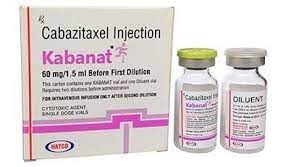By HavMeds

The type of virus that causes your hepatitis impacts the intensity and duration of your sickness.In this blog, we'll talk about hepatitis and its relation to liver cancer signs.
There are five forms of hepatitis disease, namely Hepatitis A, B, C, D, E.
Hepatitis A is a type of hepatitis usually caught by consuming a virus-infected food or drink. It does not cause long-term inflammation of the liver.
Hepatitis B is a kind of hepatitis that can spread in various ways. It can be contracted through sex with a sick person or by sharing a needle when using illegal drugs. The virus has the capability to pass from a mother to her newborn child during or shortly after birth.
Most individuals with hepatitis B get better, but a small percentage can't get rid of the virus and become carriers, which means they can pass it on to others even after their symptoms have faded.
Hepatitis C is a type of infection in the liver that can cause permanent damage to the liver. Hepatitis C is the virus that causes it. However, because it has minimal symptoms, most people are unaware. The virus can be transmitted through an infected person's blood or bodily fluids.
Hepatitis D, commonly known as the hepatitis delta virus, is a liver infection that causes inflammation. This swelling can impede liver function and lead to long-term issues such as scarring and cancer in the liver. The hepatitis D virus is to blame for the illness (HDV).
Hepatitis E is a potentially fatal acute hepatitis. Hepatitis E is the virus that causes it (HEV). The virus is designed to attack the liver. Hepatitis E can be transmitted through eating diseased animal products on rare occasions. It can also be passed from person to person through blood transfusions. A virus can be transferred to a fetus by a pregnant woman who is sick.
After a few weeks, most infections will go away on their own. The virus can also cause liver failure in some people.
Let's look at the symptoms of liver cancer in humans and how they relate to hepatitis A and other types of hepatitis.
A kind of cancer that begins in the liver is liver cancer.Cancer develops when the cells within the body's organ begin to grow out of control.The liver placed in the right upper region of the abdomen, below the ribs. It secretes bile, which assists in digesting fats, vitamins, and other nutrients.This crucial organ also stores nutrients such as glucose, which allows you to stay nourished even when you aren't eating. It also degrades poisons and drugs.When cancer strikes the liver, it commonly damages liver cells and impairs the organ's function.
Hepatitis is "liver inflammation" caused by viruses, such as hepatitis B. The virus targets the liver, impairing its capacity to perform critical functions such as filtering toxins from the blood and maintaining blood sugar levels. Hepatitis B and C viruses can cause liver cancer if they are infected for a long time.
People infected with the hep A and E viruses, on the other hand, do not develop chronic hepatitis or cirrhosis, and they do not have an elevated risk of liver cancer.
Hepatitis D, often known as HDV, is the most serious disease. It has the potential to induce cancer or failure of the liver.
The conclusion - Is liver cancer painful?
There are generally no symptoms that can be seen in early stages of the disease.
Jaundice (yellow skin/eyes)
Right-sided abdominal pain
Right shoulder blade pain
Right-sided abdominal mass or lump
Itching
Unexplained weight loss
Shortness of breath
Bloating
Right-sided abdominal or shoulder blade pain can be caused by liver cancer. It can also result in consequences such as bile duct obstruction, which causes severe stomach pain. Treatments, including surgery, can cause temporary discomfort and pain.

